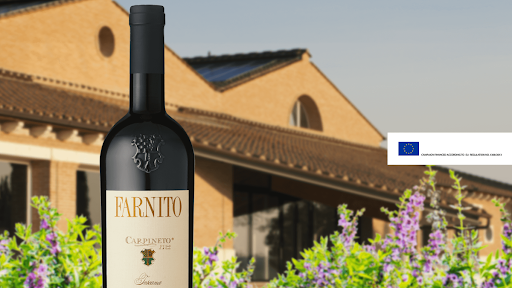It’s 2023, and therefore production cannot exist without sustainability. Vineyards are no exception and here at Carpineto we take a lot of care in making sure that our work process meets all the criteria required for a truly sustainable development. But what exactly is World Environment Day?
World Environment Day, which is celebrated every year on the 5th June, is the largest annual event of the United Nations created to promote positive environmental action, aimed at raising awareness around the globe for the protection of our planet.
Since the first World Environment Day in 1974, the event has grown to become a global platform for public awareness of the environment in more than 100 countries.
Here at Carpineto we take this issue very seriously, and want to use this opportunity to highlight the importance of sustainability in the field of wine production.
We don’t use any additives, adjuvants or stabilizers (with the exception of sulphites, in doses much lower than the community standards) and we are proud of our “no animal proteins” policy.
Achieving the protection of biodiversity, through sustainable and precise agriculture with cutting-edge technology, is one of our most important goals.
Our efforts granted Carpineto the VIVA certification in 2022 by joining the project “The Sustainability of Wine Growing in Italy”. An important way in this transformation of the industry to a sustainable one is in fact the use of certifications, where an independent third party evaluates whether or not a wine producer complies with environmentally friendly standards. On top of that, it’s been verified that our woods absorb 26% more CO2 than we produce.
Sustainability of wine production means producing wine trying to preserve natural resources for future generations and research the best methods to obtain the least possible impact on the environment. What determines if something is sustainable? Applied to viticulture, this translates into improvements in the way of making wine through the implementation of ecological vineyard production practices, economically viable and committed to the wellbeing of the community.
It is a complex model, difficult to manage and that requires years of preparation. The land must be prepared little by little, introducing gradual changes, carrying out feasibility studies and discarding outdated practices. For example, photovoltaic is our main source of renewable energy: in the Montepulciano Estate and in Dudda, Greve in Chianti, with a 150 kW solar panel system that guarantees production of green energy beyond needs. The low consumption in our cellars is also guaranteed thanks to a lamellar roof which favors natural ventilation.
We understand by sustainable vineyard the exploitation of viticulture that produces wine in balanced conditions for the environment. That it does not overexploit hybrid resources, tries to avoid soil erosion and flees from the use of synthetic chemicals in the cultivation of the grapes. It is about eliminating, as far as possible, the use of agrochemicals by resorting to organic fertilizers. As well as the responsible use of water, which is a limited resource. It is a long-term vision, to become aware of the value of the terroir and the importance of preserving the biodiversity of the environment in the production of wines.
Our vision is clear and our efforts are significant: each one of us has a responsibility to preserve the environment. Whatever the business, it’s important to develop a sustainable strategy in order to limit its ecological impact. For this reason, increasingly more wineries believe that it is necessary to go straight towards organic farming. Whatever the cultivation carried out in each winery, it is clear that a change of mentality is taking place and that all these aspects influence the sustainable development of the wine sector, and also directly impact the quality of the product.
